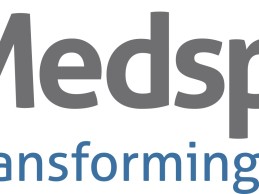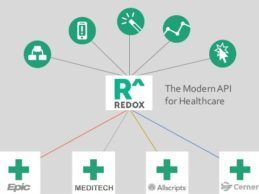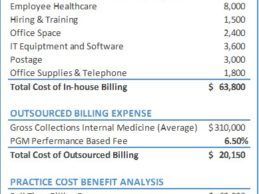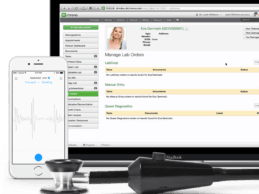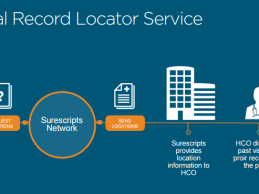Sacred Oak Medical Center, a new Houston-based inpatient behavioral health hospital has selected the Medsphere’s OpenVista® EHR system for implementation. The brand new behavioral health hospital will open later this summer with 20 beds and expand over time to an 80-bed capacity.Sacred Oak is managed by RedShift Healthcare Management and Consulting, a Houston firm providing services focused on hospital management, mergers and acquisitions and rural healthcare networks.Medsphere's OpenVista is
Read More
Electronic Health Records (EHRs) | Electronic Medical Records (EMRs) | News, Analysis, Insights - HIT Consultant
Nuance Unveils Mobile Clinical Documentation App for Physicians
“In 2015, 65% of physicians were using desktops for clinical documentation with speech recognition saving them 2.5 hours of documentation for every hour they dictated. To improve on and allow even more flexibility for physicians, Nuance Communications has unveiled Nuance Velocity, a new mobile clinical documentation solution that allows physicians in ambulatory care settings to choose which type of documentation method they want to use (speech recognition, dictation or templates) and even shift
Read More
ePatientFinder Lands $8.2M for Clinical Trail Exchange Platform
ePatientFinder, an Austin-based digital health startup that uses algorithms to match physicians with potentially life-changing clinical trials for their patients, based on their existing EHR data has raised $8.2 million Series B funding. The latest round led by a technology investor syndicate has increased the company's total funding to $11M. ePatientFinder plans to use the capital from this latest funding round to fuel the growth of its Clinical Trail Exchange and provider referral
Read More
DirectTrust Urges ONC to Expand Interoperability Measures Under MACRA
Calling the measurement of interoperability a difficult area of study, DirectTrust has filed comments applauding the Office of the National Coordinator of Health Information Technology’s (ONC) initiative to develop metrics for electronic health information exchange and interoperability. At the same time, DirectTrust is urging ONC to begin the development of metrics in a “simple” manner, recognizing that further research will be needed as the interoperable exchange of health information among
Read More
Cisco Selects EHR Integration API Redox to Join Entrepreneurs in Residence Program
Redox, a health IT startup founded by former Epic engineers helping developers integrate with EHRs and health systems manage their connections to the cloud has been selected to join the Cisco Entrepreneurs in Residence (Cisco EIR) program in Silicon Valley. The company's mission is to solve the EHR interoperability problem with their RESTful API designed to help apps share data with almost any EHR vendor at any health system.The corporate venturing program allows emerging tech companies to tap
Read More
Report: Specialty-Driven EHRs on the Rise: 8 Trends to Know
8 in 10 independent physician specialty practices have re-affirmed their confidence in specialty-driven EHRs & robust multispecialty EHRs with well-constructed specialty modules, according to a new report from Black Book Market Research. The report surveyed 11,300 specialist surgical and medical practices in Q1/Q2 2016 finds that specialists are increasing replacing their current EHRs with flexible cloud-based & specialty-driven EHRs tailored to improve financial, workflow, clinical
Read More
Pontiac General Hospital To Implement Medsphere’s Open Platform EHR
Pontiac General Hospital, a 306 licensed-bed hospital has selected the Medsphere's OpenVista® EHR system for implementation to improve management practices and clinical workflows as they also grow clinical staff and expand available services. More than just an acute care facility, Pontiac General serves the surrounding community as a healthcare hub by offering services ranging from urgent care to family medicine to obstetrics. The hospital also has a mental health unit and offers 24-hour crisis
Read More
Amazing Charts Unveils End-to-End Revenue Cycle Management to Small Practices
The era of value-based care is setting in and providers need still need to ensure they receive every dollar earned while giving quality patient care. Small practices need to be diligent about financial processes as coding errors, etc. can result in revenue leakage. To meet this need, Amazing Charts, a provider of EHR and PM systems, announced a new revenue cycle management (RCM) service specific to independent physician practices powered by PGM Billing, a leader of medical billing services.Ideal
Read More
drchrono Integrates Heart & Lung Sounds into EHR for Clinical Documentation
Three companies have teamed up to integrate a patient's heart and lung sounds into the EHR for clinical documentation for the first time ever, representing a milestone in longitudinal patient care. The new partnership from Direct Urgent Care,Eko, and drchrono uses a quick three step process, clinicians can now seamlessly integrate heart and lung sounds into a patient's EHR. How It Works1. Direct Urgent Care, a Berkeley-based urgent care provider with 30,000 patients, enables providers to record
Read More
SSM Health Goes Live on Surescripts National Record Locator Service
Today, Surescripts announced that it has activated more than 10,000 SSM Health clinicians in Illinois, Missouri and Oklahoma on its National Record Locator Service, to locate patient records and obtain a more complete view of the health of a patient, regardless of where the patient received care.Imagine the scenario: you are visiting the Chicago area, and you fall ill and have to visit the ER at one of SSM Health’s many hospitals in the region. You’re too ill to properly remember your complete
Read More

